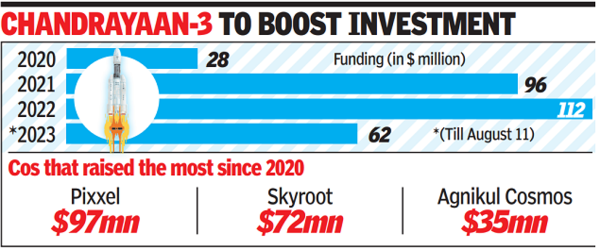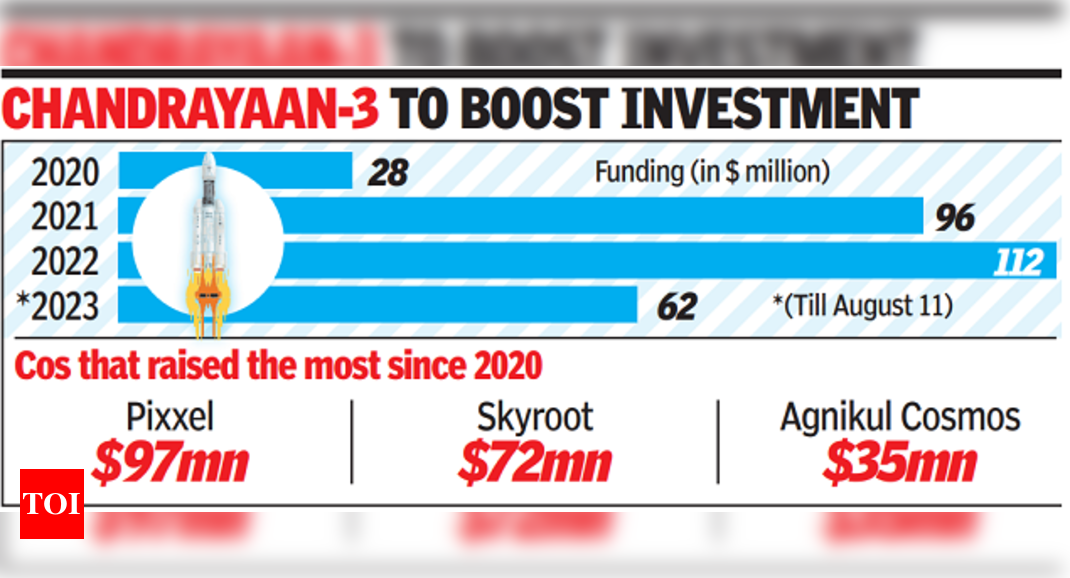[ad_1]
The sector stands apart from others currently plagued by funding challenges and macroeconomic fluctuations, analysts at Tracxn said, noting that the average deal size in space tech investments climbed from $2.8 million in 2020 to $15 million in 2023.
Previously dominated by government players, the space sector saw its first lift-off in 2020 with its privatisation, and the success of Chandrayaan-3 has emerged as the next big thrust for private space tech companies. In terms of entrepreneurial action, the total number of space tech startups has grown around 25%, from 67 companies in 2020 to 84 in 2023 (year-to-date).

As the first country to land on the south pole of the moon, India’s reputation has gone up in the global space economy – creating a favourable environment for startups to raise funds and do business globally, industry players and investors told TOI.
Lt Gen A K Bhatt (retd.), director general, Indian Space Association, says that the country’s space startups stand to gain credibility while doing business in the global arena with the recent success of India’s moon mission. “With this, opportunities for overseas direct investment increase and improves fundraising opportunities for our private players,” he adds, noting that startups will play a key role in the creation and exploration of a “lunar economy”.
“The success of the Chandrayaan-3 mission strongly re-enforces India as a leading space-faring nation with accomplishments in the launch vehicle, satellite, space application and space exploration domains,” says Vishesh Rajaram, managing partner, Speciale Invest.
Speciale Invest has been the most active VC firm in the Indian space sector since 2020. India already has strong ties with space agencies in Singapore, France, the US, etc, and its successful lunar mission will likely aid growth in private investment, he says.
Awais Ahmed, CEO of space tech startup Pixxel, says Chandrayaan-3’s success opens up global collaboration opportunities for space tech startups towards future lunar or planetary missions. “Further, this will inspire a new generation of engineers, scientists, and entrepreneurs as well as more startups to enter the space industry and continue to innovate, uplift and break barriers globally,” he adds.
According to an recent analysis by consulting firm PwC, the “lunar market” is set to surpass $170 billion by 2040.
[ad_2]
Source link

